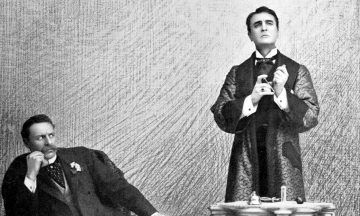Rima Basu in Aeon:
 If we’re the kind of people who care both about not being racist, and also about basing our beliefs on the evidence that we have, then the world presents us with a challenge. The world is pretty racist. It shouldn’t be surprising then that sometimes it seems as if the evidence is stacked in favour of some racist belief. For example, it’s racist to assume that someone’s a staff member on the basis of his skin colour. But what if it’s the case that, because of historical patterns of discrimination, the members of staff with whom you interact are predominantly of one race? When the late John Hope Franklin, professor of history at Duke University in North Carolina, hosted a dinner party at his private club in Washington, DC in 1995, he was mistaken as a member of staff. Did the woman who did so do something wrong? Yes. It was indeed racist of her, even though Franklin was, since 1962, that club’s first black member.
If we’re the kind of people who care both about not being racist, and also about basing our beliefs on the evidence that we have, then the world presents us with a challenge. The world is pretty racist. It shouldn’t be surprising then that sometimes it seems as if the evidence is stacked in favour of some racist belief. For example, it’s racist to assume that someone’s a staff member on the basis of his skin colour. But what if it’s the case that, because of historical patterns of discrimination, the members of staff with whom you interact are predominantly of one race? When the late John Hope Franklin, professor of history at Duke University in North Carolina, hosted a dinner party at his private club in Washington, DC in 1995, he was mistaken as a member of staff. Did the woman who did so do something wrong? Yes. It was indeed racist of her, even though Franklin was, since 1962, that club’s first black member.
To begin with, we don’t relate to people in the same way that we relate to objects. Human beings are different in an important way. In the world, there are things – tables, chairs, desks and other objects that aren’t furniture – and we try our best to understand how this world works. We ask why plants grow when watered, why dogs give birth to dogs and never to cats, and so on. But when it comes to people, ‘we have a different way of going on, though it is hard to capture just what that is’, as Rae Langton, now professor of philosophy at the University of Cambridge, put it so nicely in 1991.
More here.
